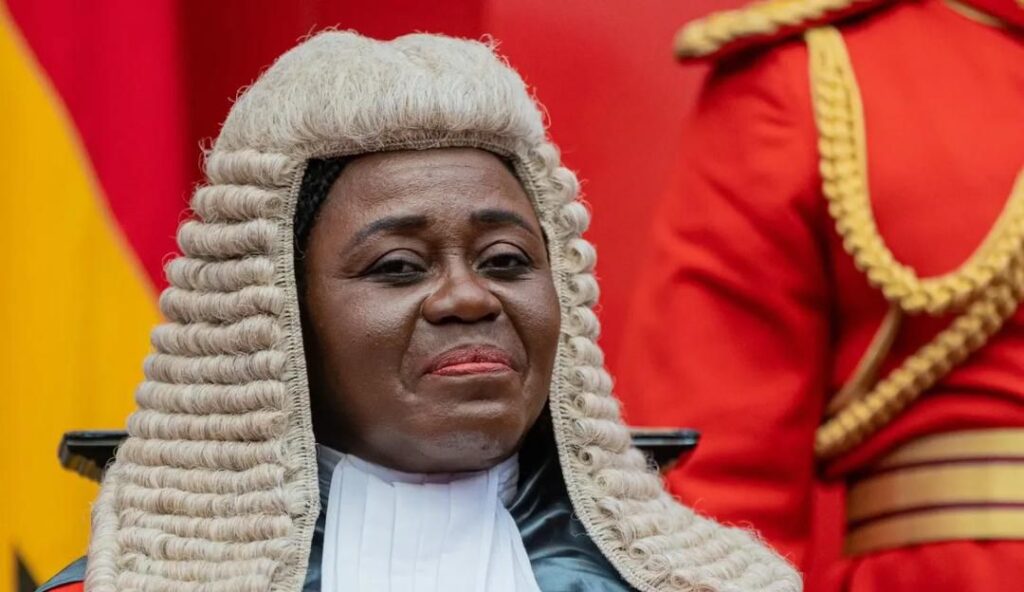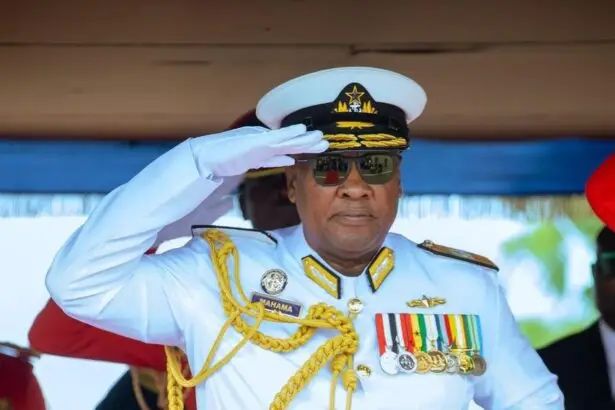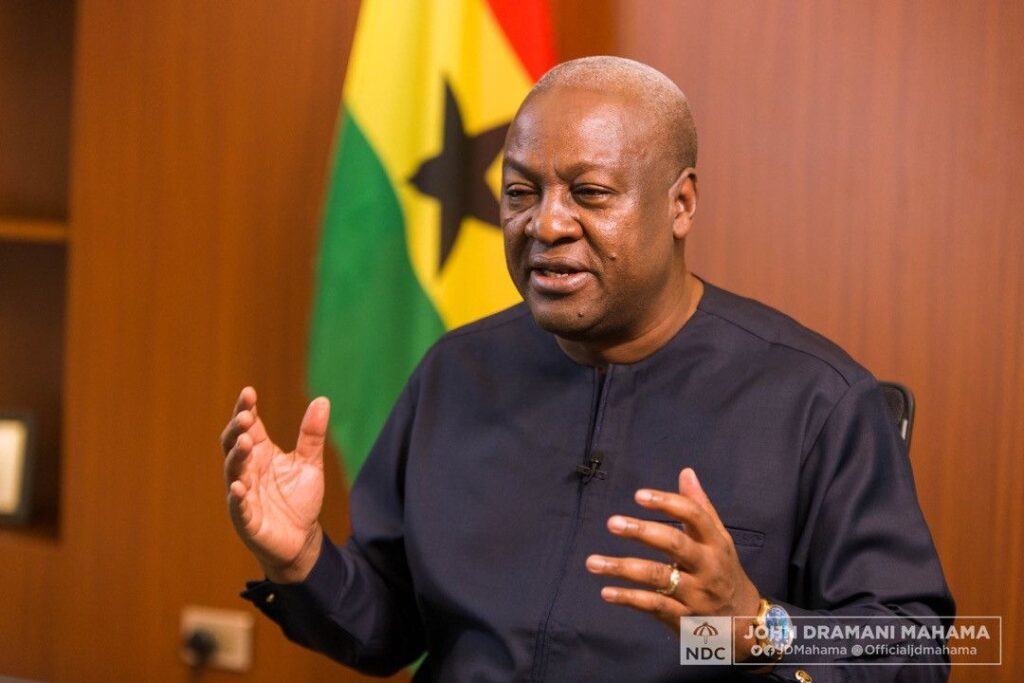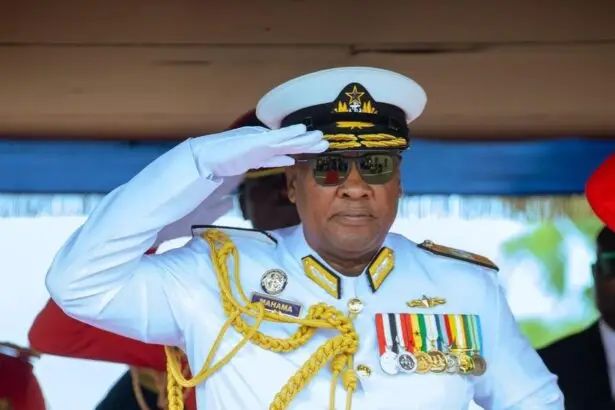Accra, Ghana – President John Dramani Mahama has firmly rejected claims that his removal of Chief Justice Gertrude Araba Esaaba Sackey Torkornoo signals an attempt to consolidate authoritarian control. Addressing the nation’s concerns, he insisted his actions were guided solely by constitutional processes and not by any ambition to become a supreme leader.
Chief Justice Removal Sparks Debate
On September 1, 2025, Chief Justice Torkornoo was dismissed following a petition filed by a citizen, Mr. Daniel Ofori. A committee established under Article 146(6) of the 1992 Constitution investigated the petition and subsequently recommended her removal. Acting under Article 146(9), the presidency enforced the decision, which took immediate effect.
While government spokespersons described the removal as a straightforward constitutional process, the development has stirred strong public debate. Legal experts, opposition voices and sections of civil society have expressed concern about the implications for judicial independence and the balance of power.

Rising Concerns Over Democracy
Critics argue that the timing of the removal, coupled with the National Democratic Congress’s overwhelming parliamentary majority, could lead to a concentration of power in the executive branch. Ghana’s Parliament currently allows the ruling party to control more than two-thirds of the House, raising questions about potential constitutional amendments.
Some opposition figures have alleged that such a majority could be exploited to extend presidential tenure beyond the mandated two terms. Similar controversies have unfolded in African countries such as Rwanda, Côte d’Ivoire and Uganda, where constitutional changes allowed leaders to prolong their stay in office. Observers fear Ghana could face comparable challenges if safeguards are not upheld.
Mahama Dismisses ‘Supreme Leader’ Fears
In his first media engagement following the Chief Justice’s dismissal, held on September 10, President Mahama directly addressed these criticisms. He insisted that he remains committed to democratic governance and dismissed claims that he harbors authoritarian ambitions.
“Look at me. Do I look like a supreme leader? I am a democrat through and through,” he told reporters. Mahama added that even with a parliamentary super majority, his government had pledged not to impose its will on the minority. “We will continue to give space for democracy to flourish,” he said.
The president emphasized that the Chief Justice’s removal followed the constitution to the letter. According to him, the recommendation from the investigative committee was binding and his duty was to act on it.
“This was not about consolidating power. It was about respecting due process,” he stressed.
Why the Supreme Leader Debate Matters to Ghana

Ghana is widely seen as a model of democracy in West Africa, with a tradition of peaceful transfers of power since 1992. The debate over Mahama’s alleged attempt to act as a supreme leader matters not only for domestic governance but also for the country’s international reputation.
In a region where military coups have unsettled Mali, Burkina Faso and Niger in recent years, Ghana’s stability is viewed as critical. Any perception of democratic backsliding could weaken investor confidence, strain relations with international partners and undermine Ghana’s leadership role in the Economic Community of West African States (ECOWAS).
Local civil society organisations such as the Ghana Center for Democratic Development (CDD-Ghana) have called for greater transparency in future judicial appointments. They argue that maintaining judicial independence is essential to protecting citizens’ trust in the courts and safeguarding the separation of powers.
Historical Context of Judicial Independence
Ghana has previously faced debates over the executive’s influence on the judiciary. In 1999, former President Jerry John Rawlings came under criticism for comments perceived as undermining the judiciary, while in 2018, concerns were raised about the processes surrounding Chief Justice Sophia Akuffo’s retirement. However, in each case, Ghana’s constitutional system remained resilient.
Analysts say that the current controversy presents another opportunity for Ghana to demonstrate the strength of its democratic institutions. How President Mahama and Parliament handle subsequent judicial appointments will be closely watched.
Balancing Power With Responsibility

Political observers argue that Mahama’s administration must carefully manage its super majority in Parliament to avoid reinforcing fears of authoritarianism. By ensuring inclusivity in parliamentary debates and engaging civil society, the government could reinforce its democratic credentials.
Some legal practitioners have proposed that future constitutional reviews should focus on strengthening safeguards that limit executive overreach. Others suggest that the Council of State should be given a stronger role in judicial appointments to reduce perceptions of political influence.
Neutral Closing Insight
The controversy surrounding the Chief Justice’s dismissal has opened an important national conversation about executive power, judicial independence and Ghana’s democratic resilience. While President Mahama has assured the public that he is not seeking to become a supreme leader, the durability of those assurances will depend on how his administration navigates future decisions.
For many Ghanaians, the episode is a reminder that democracy requires constant vigilance and a balance of power among the nation’s institutions.
Read also: Afenyo-Markin’s Bold GH¢105K Student Support Draws Mixed Reactions

